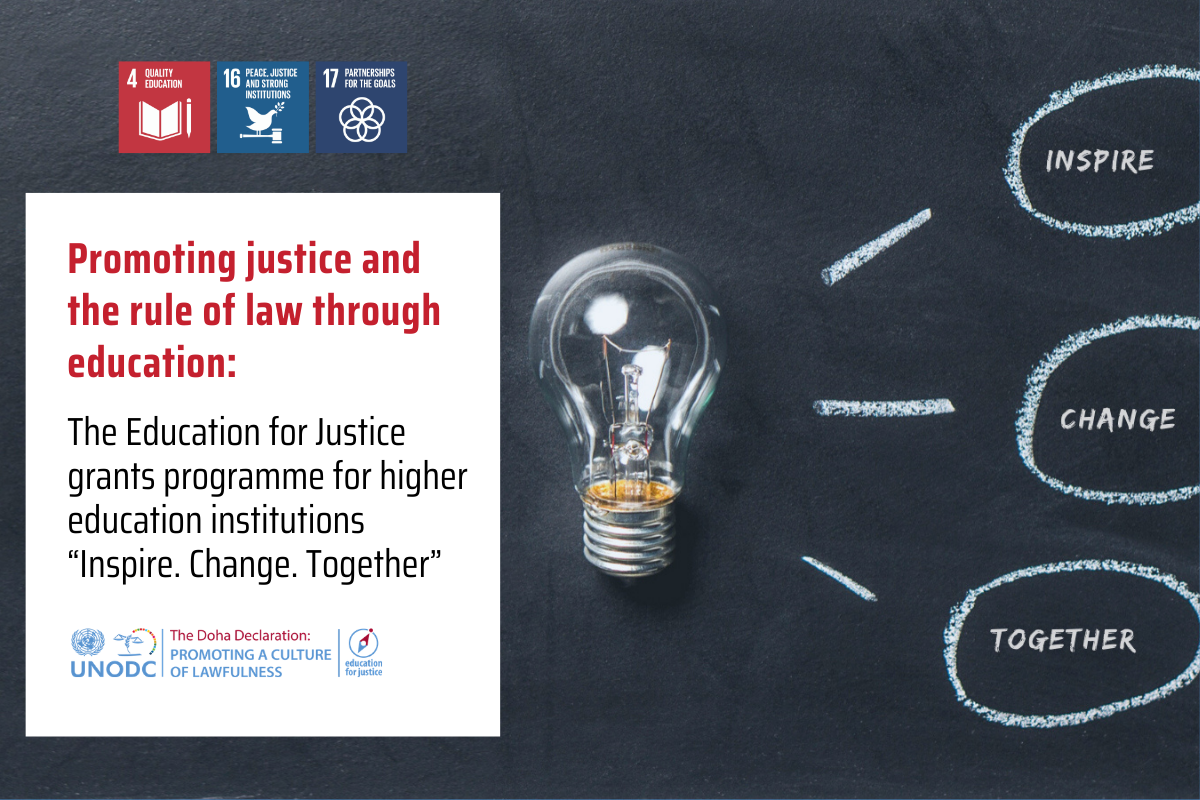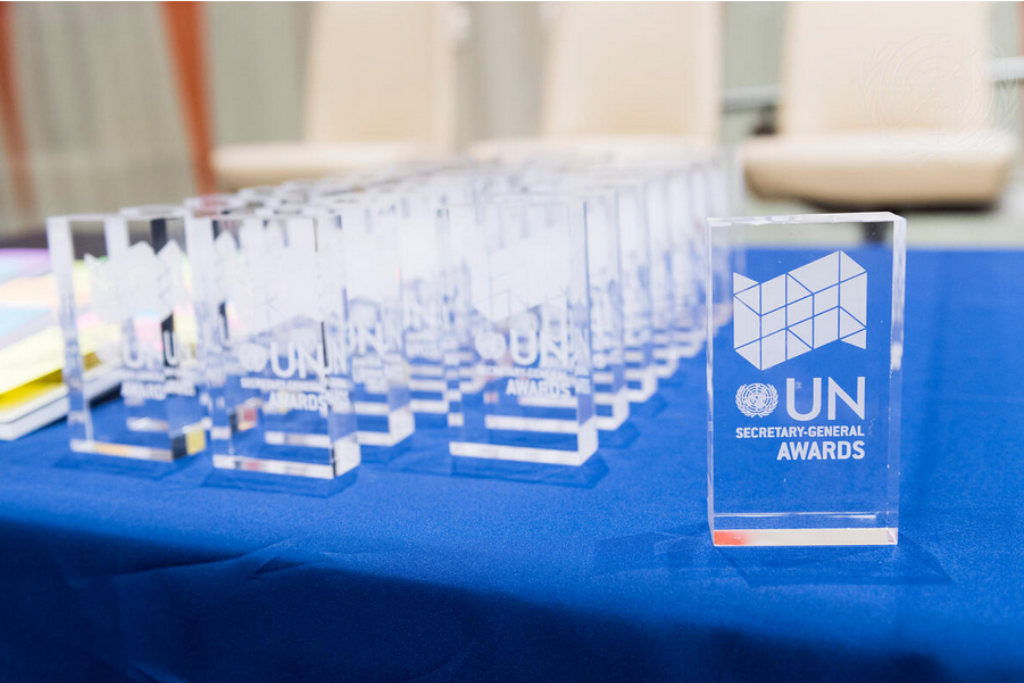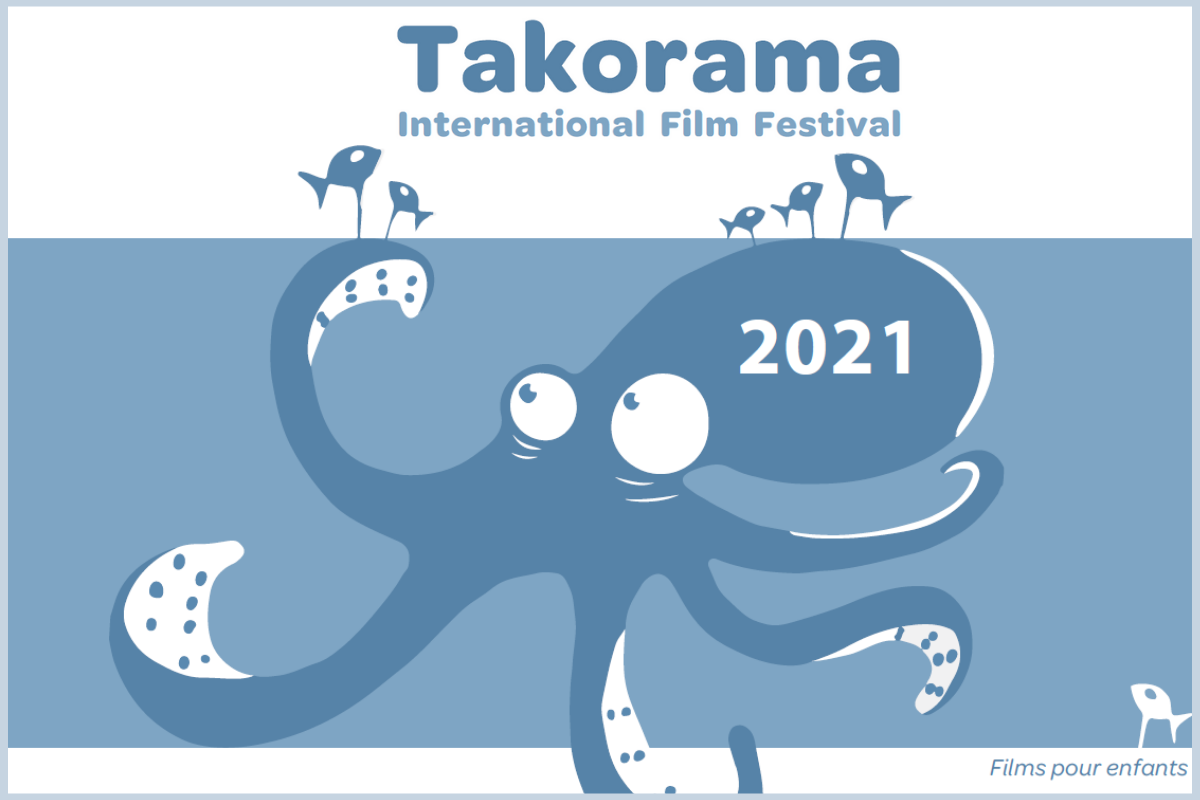Having their say on SDG16, youth tell E4J how to continue empowering them
25 April 2019 - "You are never too young to lead, and never too old to learn," once remarked the late United Nations Secretary-General Kofi Annan, an observation which many young people around the world are eagerly adopting as a mantra, leading by example and making officials and policymakers take notice. This month, hundreds of young people gathered in New York City for ECOSOC's (United Nations Economic and Social Council) annual Youth Forum, modelled after the High-Level Political Forum - which reviews the implementation of the Sustainable Development Goals. This year, participating youth's focus was on several SDGs including goal 16, which is the remit of UNODC.
 In its pursuit of peace, justice and strong institutions, and of educating the next generation to achieve these goals, the Global Programme for the Implementation of the Doha Declaration's Education for Justice (E4J) initiative was an active contributor to this year's Forum. For its special event "Have your say; empowering youth to support SDG 16," co-organized with Afghan NGO Hope for Education and Leadership (HELA), E4J invited young people attending the Forum to debate the myriad ways in which youth could become more involved in shaping a safer, more just future. The event was facilitated by youth from Afghanistan, Brazil, Ethiopia and Nigeria.
In its pursuit of peace, justice and strong institutions, and of educating the next generation to achieve these goals, the Global Programme for the Implementation of the Doha Declaration's Education for Justice (E4J) initiative was an active contributor to this year's Forum. For its special event "Have your say; empowering youth to support SDG 16," co-organized with Afghan NGO Hope for Education and Leadership (HELA), E4J invited young people attending the Forum to debate the myriad ways in which youth could become more involved in shaping a safer, more just future. The event was facilitated by youth from Afghanistan, Brazil, Ethiopia and Nigeria.
|
Ambassador Sheikha Alya Ahmed bin Saif Al-Thani, Permanent Representative of the State of Qatar (which supports the Global Programme), launched the event by stressing the need to include youth in decisions influencing their lives: "Young people all over the world are affected by different forms of violence, such as armed conflict, crime, corruption and terrorism. Effective prevention and resolution of violence, as well as the promotion of justice, must look to youth as agents of positive change." The only way to achieve this change, she concluded in her opening statement, was through education: "If young people are to uphold the rule of law, then education can empower them to do so, especially if they have more knowledge on the complex issues related to crime, justice and violence."
Empowering youth to become socially responsible citizens with a sound moral and ethical compass, and who are prepared to tackle the world's most pressing shared challenges related to the rule of law, is a major objective of E4J. As UNODC representative Simone Monasebian explained, this event was a youth-led discussion, generating youth-led recommendations which would be taken seriously: "These recommendations will not just stay here, and UNODC will prepare a Conference Room Paper, submitting the outcomes of this event, to the Members of the Commission on Crime Prevention and Criminal Justice, a functional commission of ECOSOC which meets in Vienna every May.
|
The determination of this generation to make an impact was perhaps best described by Rediet Wondwossen, a student from Lebawi Academy in Addis Ababa invited to the Forum by E4J: "The youth cannot wait or be told to take initiative," she said, "it is up to us to take the initiative, we are the answers to all our problems in our community."
Numerous innovative tools and resources have been developed and used by E4J to help it fulfill its mission to educate the next generation on a culture of lawfulness. In the 3 rd Pan-African Youth Conference held in Banjul in late March, under the theme "The future is now; youth are not too young to lead," E4J organized a "Living Library" inviting young African leaders from Kenya, Zimbabwe and Ghana as "living books," sharing their experiences in their respective countries as agents of changes, with a special focus on SDG16.
Priscilla Wepia Ametame, a young Ghanean fourth-year law student and co-founder of the Adehye Learning Initiative, reflected on the message she had wanted to pass through her living book, 'T.M.I. (Too Much Information)': "I suggested that education be made more practical, to ensure that the culture of lawfulness is passed through the educational system at all stages. I also highlighted the need to push for its promotion in informal settings like our homes and our communities, and to use social media as a tool and a means to start conversations about these social issues, starting movements calling for lawfulness and accountability."
|
Other topical living books presented at this popular E4J event included those of Kudzai Mukaratirwa, the young director of OMUN Zimbabwe, Edward Reuben Githaiga, co-founder of Youth Voices Kenya, and Wambui Kahara, Individual Contractor with UNODC Eastern Africa. Together, they advocated for encouraging youth engagement in Africa and make a difference, inter alia, by strengthening good governance and the rule of law in their countries - a call increasingly made by young people across all continents. As the enthusiastic Rahmatullah Hamdard, the young Afghan co-founder of HELA, told participants in ECOSOC's Annual Youth Forum, "as an army of youth, let's be the force for change, make an impact, and spread the knowledge of SDG16."
Additional information
Education for Justice


